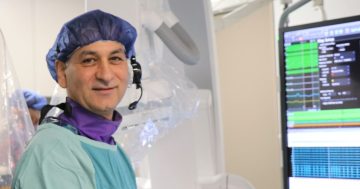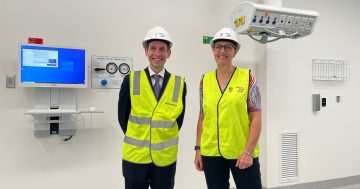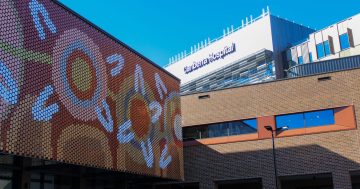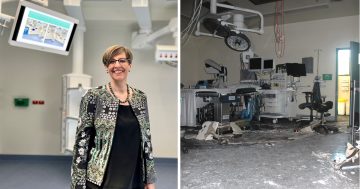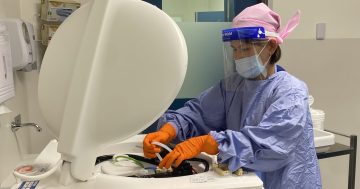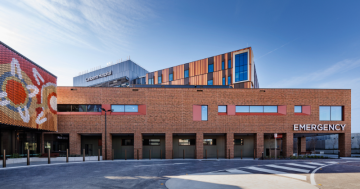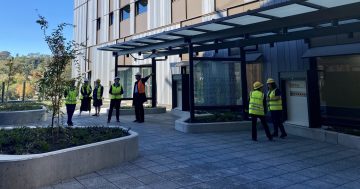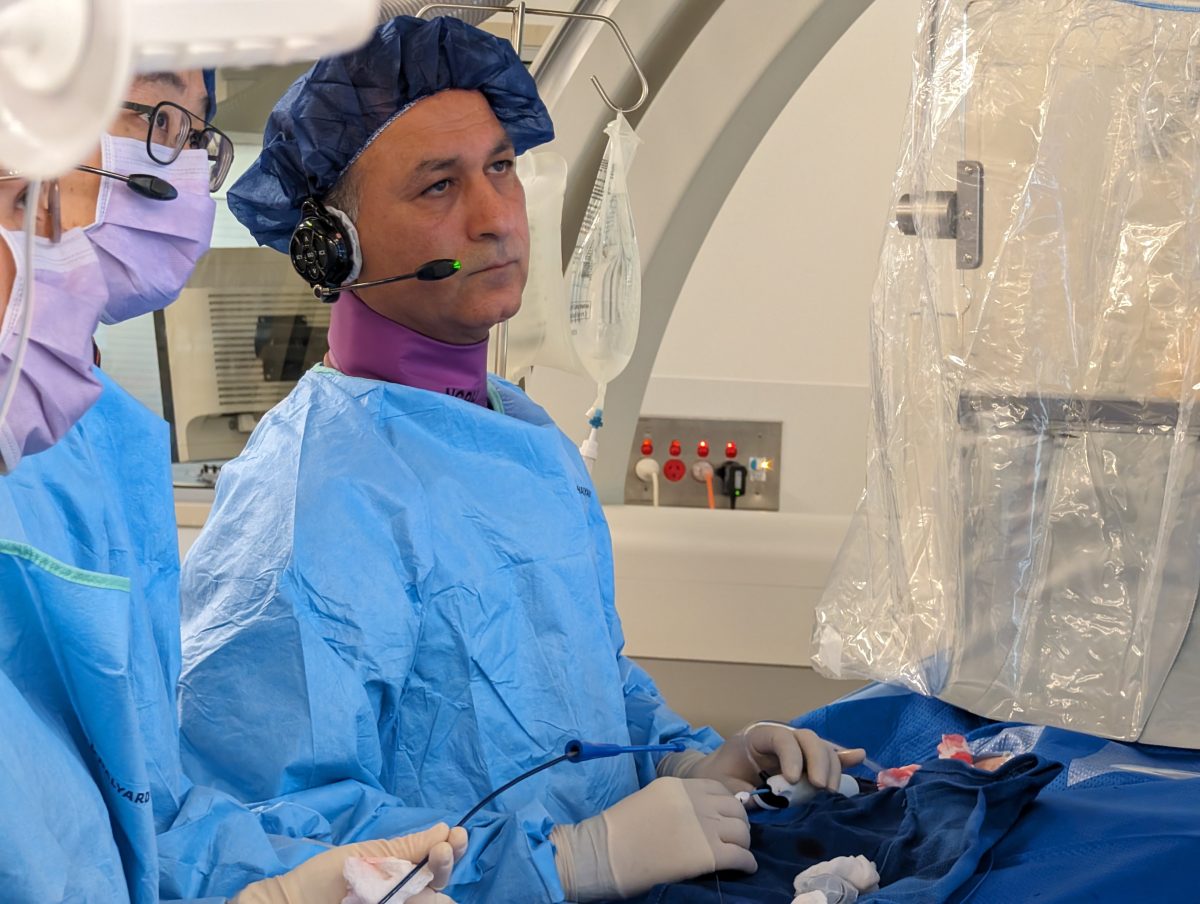
Dr Muayad Alasady performs the first pulse field ablation (PFA) procedure at the National Capital Private Hospital. Photos: Bryden Campbell.
Leading cardiac specialist and electrophysiologist Dr Muayad Alasady is pioneering pulse field ablation (PFA) technology for atrial fibrillation (AF) procedures at the National Capital Private Hospital in Garran – the first time the procedure has been performed in an Australian private hospital.
The new procedure is safer and more precise than the traditional method, with better recovery times, and further enhances Canberra’s capacity for cardiac services and as a regional health hub.
AF is one of the most common and undertreated heart rhythm disorders. It is a progressive condition that can worsen over time, leading to serious complications such as heart failure, stroke and increased risk of death.
Traditional ablation involves inserting a catheter through the groin that will deliver cold (cryoablation) or heat (radio frequency ablation) to get rid of the tissue in the area of the heart that causes it to beat irregularly.
However, this can risk damage to areas around the heart, such as the veins and the feeding tube or oesophagus. PFA uses pulsed electric fields to isolate the pulmonary veins precisely and efficiently, significantly reducing this risk. It also cuts the time spent in the operating room, leading to improved patient outcomes and reduced surgical waitlists.
Dr Alasady told Region that the PFA device, still delivered by a catheter, emits a small electrical shock that kills the cells, “but it is very, very quick and very limited, and it is not deep enough to cause any unwanted injuries”.
“It is more efficient and the procedure more predictable than radio frequency or cryoablation,” he said.
“Because it’s quite a safe procedure, I think there is a potential to discharge the patient on the same day of the procedure.”
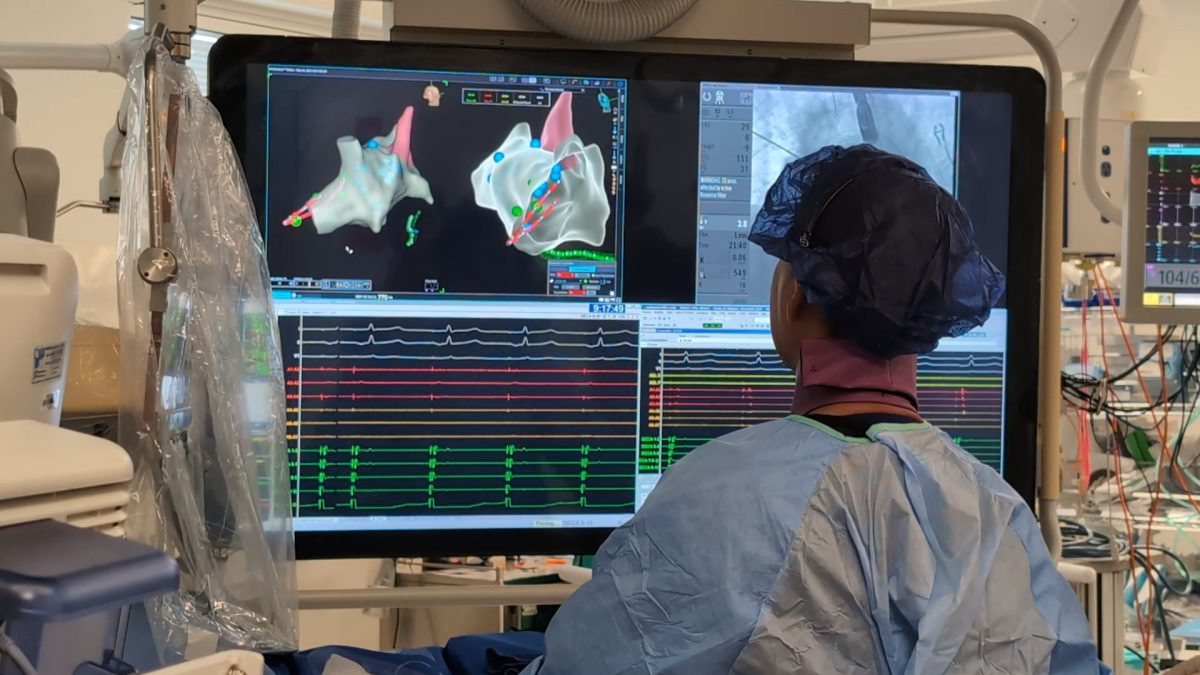
Dr Muayad Alasady uses 3D mapping to guide him during the PFA procedure: Safer, more efficient and better patient outcomes.
Dr Alasady said it was common for patients to experience post-operative pain, sometimes severe, but the new modality was highly selective and specific to the tissue at fault and there was no collateral damage, “so a patient doesn’t have chest pain and it also is a very safe procedure”.
It was also more efficient, with the first procedure on Thursday (30 May) taking 30 to 45 minutes, although it was early days and that time would vary.
“But the flow of the procedure and the efficiency is so good, I think it’s going to make the procedure much quicker,” he said.
Dr Alasady performed two more procedures on Thursday and said he did five or six ablations a week.
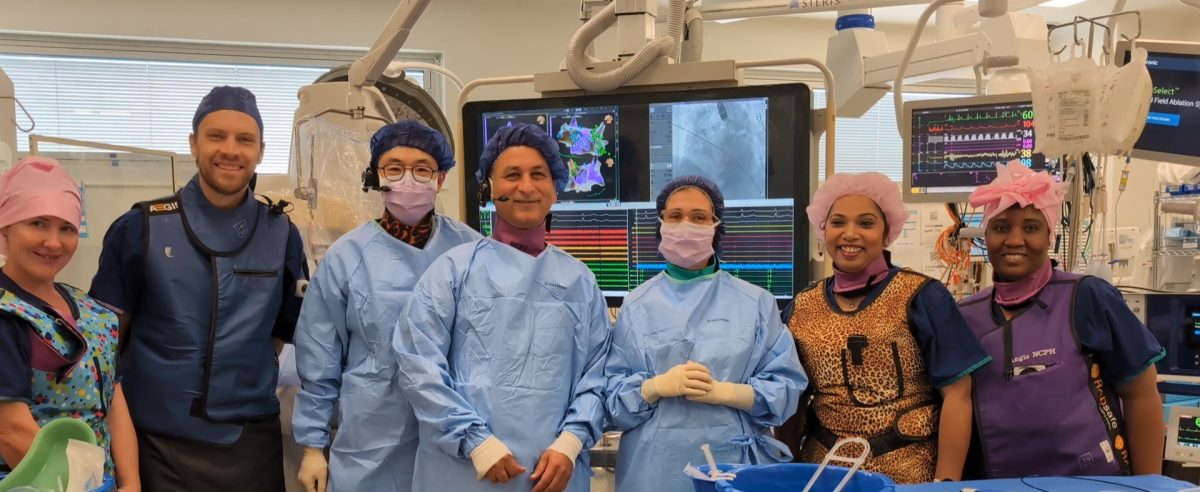
The full team who conducted the pioneering PFA procedure.
The procedure was also no more costly than traditional ablation, he said.
It could also replace drug treatments and have wider applications.
“I would expect pulse wave to be the first line therapy in all cardiac arrhythmias, not just atrial fibrillation,” Dr Alasady said.
“I think the new technology is going to evolve more and it will be utilised in all sorts of heart rhythm disorders.”
Dr Alasady said adopting this technology was excellent news for people in Canberra and the surrounding region, where he also conducts consultations through his practice Rhythm and Cardiac Specialists.
“I’m hoping the technology will be used in the public system in the future as well.”
Dr Alasady frequently collaborates with teaching institutions worldwide to stay abreast of the latest technological advancements and the National Capital Private Hospital has often been an early adopter.
Business development manager Joycelyn Thompson said the hospital saw itself as a centre of excellence and identified the potential of this new technology for better patient experiences and outcomes.
“We do like to bring new technologies to Canberra, so it saves patients going all the way to Sydney or down to Melbourne,” he said.
“What’s really good about this technology is that patients can recover a lot quicker, they can go home.
“But the good thing about being here in Canberra is that if they do have to travel regionally, there’s maybe a one-night stay and the families can come with them.
“They often have families here that can help them recover before they go back home.”
Dr Alasady established the first cardiac electrophysiological service at the National Capital Private Hospital in 2013 and the Canberra Hospital in 2019.












